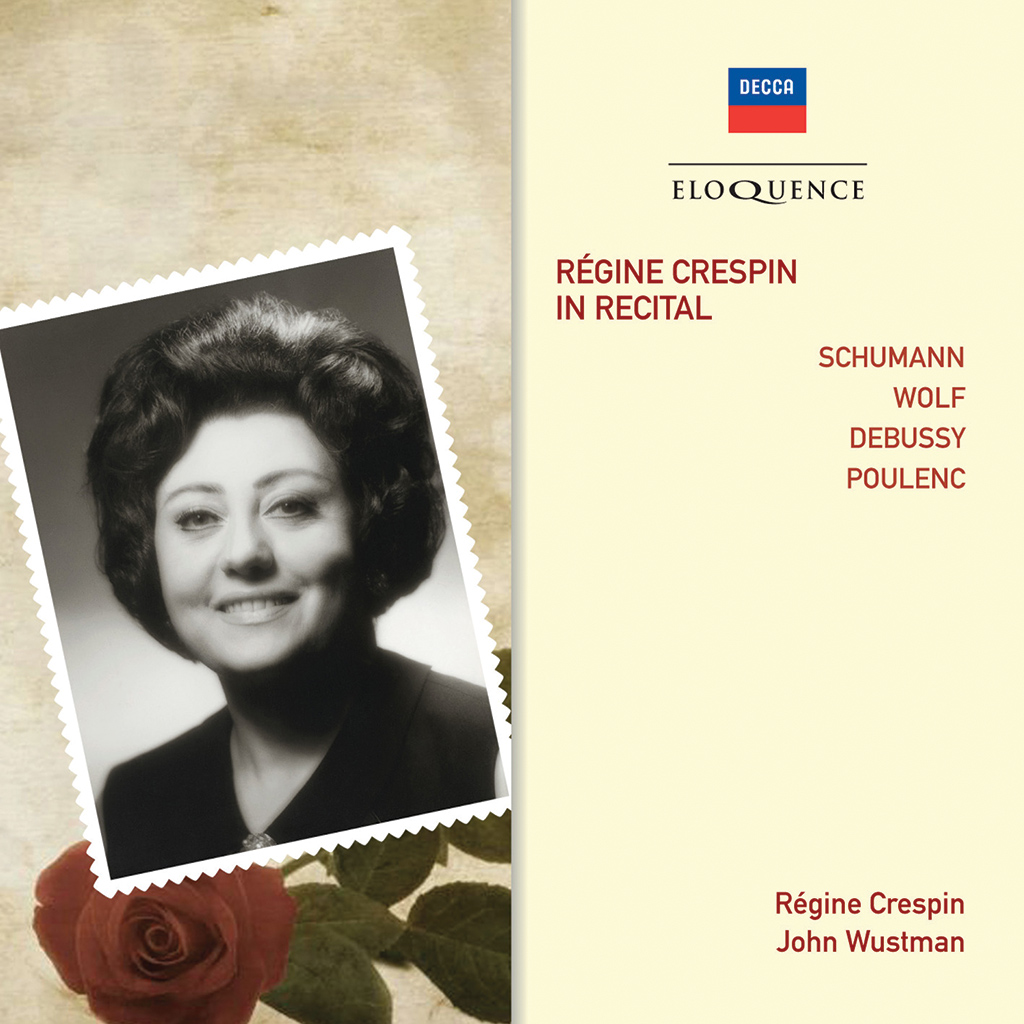
The larger-than-life Régine Crespin, made only one song recital record for Decca, of music by Schumann, Wolf, Debussy and Poulenc. This is the first time the entire recital has been made available on CD.
As her career progressed, Crespin became associated with certain roles – Kundry, Sieglinde, Brünnhilde, Tosca, the Marschallin – but she was prodigiously versatile, thanks to her years in the French provinces. An intelligent singer who understood how to make the texts count, Crespin also had tremendous success in non-operatic repertory. Her 1963 Decca recording with conductor Ernest Ansermet, of Berlioz’s Les Nuits d’été and Ravel’s Shéhérazade, is regarded as among the best available.
In its original French, her candid and entertaining autobiography is called La vie et l’amour d’une femme, which is also the French translation of Schumann’s song cycle Frauenliebe und -leben. Indeed, Lieder by Schumann and Wolf were important parts of her recital repertory, and she brought the same depth of meaning to their German texts as she did to her Wagnerian roles. Of course French, being her native language, evoked a most immediate and intimate response from this singer.
CD1
SCHUMANN
Gedichte der Königen Maria Stuart, Op. 135
WOLF
In der Frühe
Der Gärtner
Das verlassene Mägdlein
Ich hab’ in Penna
Anakreons Grab
Verschwiegene Liebe
CD2
DEBUSSY
Trois Chansons de Bilitis
POULENC
Chanson d’Orkenise; Hôtel
Le carafon
La reine de cœur
Les gars qui vont à la fête
‘C’
Fêtes galantes
Régine Crespin, soprano
John Wustman, piano
Recording Producer: John Mordler
Balance Engineer: Michael Mailes
Recording Location: Kingsway Hall, London, UK, May 1967
‘It is difficult, indeed I find it impossible, to think of any soprano capable of singing Brünnhilde, as Régine Crespin has done, who is also capable of making a success of such a varied programme as this recital offers, but this she most certainly has achieved from start to finish. … She has in John Wustman a pianist truly worthy of her, sensitive to every mood and nuance. … I can give no higher praise to Crespin’s singing of Debussy’s Chansons de Bililis than to say it does not suffer from comparison with Maggie Teyte’s. … The balance between voice and piano is very good, and so here is everything for our delight. This is, indeed, one of the finest song recitals of recent times and I most warmly and enthusiastically recommend it.’ Gramophone
